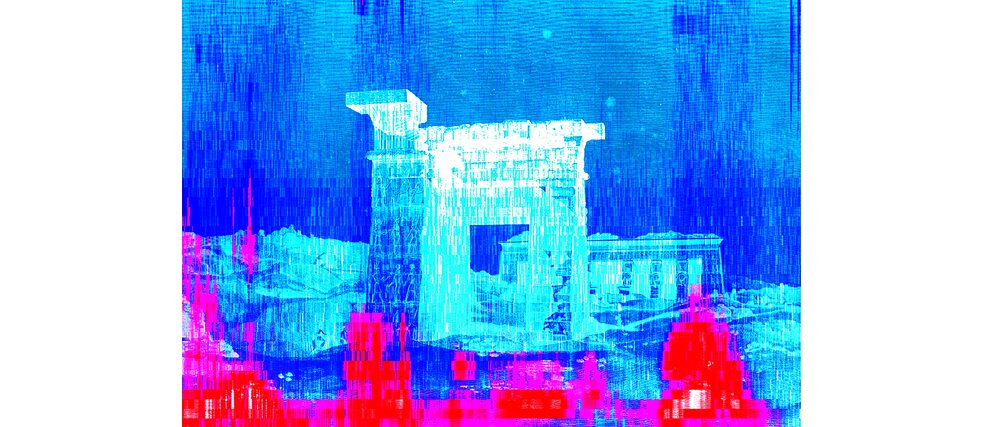Abhishek Hazra
About the Actant
 © Abhishek Hazra
Abhishek Hazra’s art practice traverses a diverse, yet closely interconnected mesh of seemingly trivial preoccupations. Increasingly interested in performance while still being quite ambivalent about privileging ‘liveness’, his recent series of lecture-performances explore questions around histories of science and provincial cosmopolitanism through the figure of the amateur enthusiast. Abhishek has exhibited and performed widely, including at MACBA, Barcelona; Kochi-Muziris Biennale 2016; Experiment Marathon - Serpentine Gallery, London and Reykjavik Art Museum; Kunstmuseum Bern; Bose Pacia, New York; MAXXI Museum, Rome; GallerySKE, Bangalore; KHOJ, Kiran Nadar Museum and OCAD, Toronto. He has been a Charles Wallace scholar and an artist-in-residence in various residences including Gasworks, London; Art Omi, New York and SymbioticA, Centre of Excellence in Biological Arts, Perth. Abhishek has also been the recipient of multiple awards including the 2011 Sanskriti Award for Visual Art.
© Abhishek Hazra
Abhishek Hazra’s art practice traverses a diverse, yet closely interconnected mesh of seemingly trivial preoccupations. Increasingly interested in performance while still being quite ambivalent about privileging ‘liveness’, his recent series of lecture-performances explore questions around histories of science and provincial cosmopolitanism through the figure of the amateur enthusiast. Abhishek has exhibited and performed widely, including at MACBA, Barcelona; Kochi-Muziris Biennale 2016; Experiment Marathon - Serpentine Gallery, London and Reykjavik Art Museum; Kunstmuseum Bern; Bose Pacia, New York; MAXXI Museum, Rome; GallerySKE, Bangalore; KHOJ, Kiran Nadar Museum and OCAD, Toronto. He has been a Charles Wallace scholar and an artist-in-residence in various residences including Gasworks, London; Art Omi, New York and SymbioticA, Centre of Excellence in Biological Arts, Perth. Abhishek has also been the recipient of multiple awards including the 2011 Sanskriti Award for Visual Art. Further information can be accessed at http://abhishekhazra.net/
 © Abhishek Hazra
A Blanket of Sinusoidal Owls at Dusk is an attempt to mull over a marginal silence in a canonical text. This text can easily be compared to a South Asian shipyard from which a thousand elementary ships have sailed to great academic acclaim. Over three evenings, this project will unfold through lecture-performances and acts of textual exhumation staged as durational writing. Post-performance, informal discussions will try to locate the Owl of Minerva hiding in Kasturba Gandhi Marg. The marginal silence in this ‘shipyard’ text is such that it can easily trigger the absurd but strangely normalised caricature of ‘Two Cultures’. The project, however, will speculate other possible reasons for the shipyard’s silence while also being embarrassed about the sheer belatedness of such speculations. This might prompt the lecture-performances to address this silence tangentially by chronicling the misguided hunt for technosocial objects seemingly untainted by colonial histories.
© Abhishek Hazra
A Blanket of Sinusoidal Owls at Dusk is an attempt to mull over a marginal silence in a canonical text. This text can easily be compared to a South Asian shipyard from which a thousand elementary ships have sailed to great academic acclaim. Over three evenings, this project will unfold through lecture-performances and acts of textual exhumation staged as durational writing. Post-performance, informal discussions will try to locate the Owl of Minerva hiding in Kasturba Gandhi Marg. The marginal silence in this ‘shipyard’ text is such that it can easily trigger the absurd but strangely normalised caricature of ‘Two Cultures’. The project, however, will speculate other possible reasons for the shipyard’s silence while also being embarrassed about the sheer belatedness of such speculations. This might prompt the lecture-performances to address this silence tangentially by chronicling the misguided hunt for technosocial objects seemingly untainted by colonial histories.